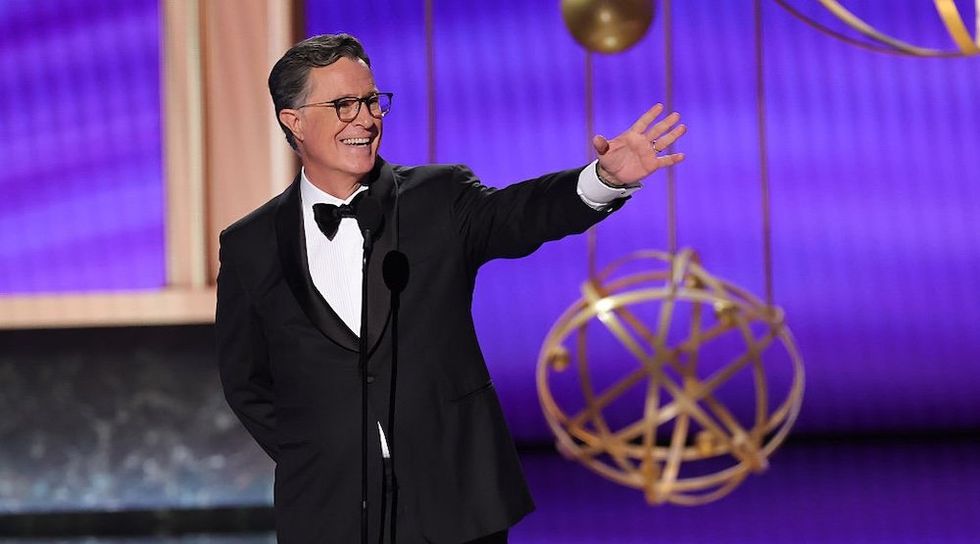Sinclair Broadcast Group has “indefinitely suspended” Jimmy Kimmel’s ABC late-night show — a show that had long struggled in ratings — after he falsely claimed Charlie Kirk’s assassin supported Donald Trump. Nexstar quickly followed. Together, Sinclair and Nexstar are the nation’s two largest TV station groups, with dozens of affiliates across the country. Their decisions this week sent shockwaves through the media landscape.
The reality is both companies acted independently, without government orders. Yet, the left instantly accused Federal Communications Commission Chairman Brandon Carr of pressuring the networks after he publicly commented on the suspensions.
Kimmel’s show didn’t collapse because of an FCC conspiracy. It collapsed because audiences walked away, and his bosses finally caught up.
That framing distorts reality. Corporations — not regulators — are making these editorial calls based on ratings and audience alignment. Demands for government intervention are not only unnecessary but intentionally misleading.
The ratings tell the story. Kimmel has been floundering for years. Nielsen data shows his program couldn’t even crack the top 100. Contrast that with Tucker Carlson, whose departure from Fox News sparked cheers on the left, even though his show ranked second across all of cable news. The double standard couldn’t be clearer. Success on the right is branded as dangerous. Failure on the left is brushed off as bad luck — or twisted into claims of political persecution.
Disney, which owns ABC, now faces added headaches as it negotiates high-stakes deals such as ESPN’s acquisition of the NFL Network. Even the suggestion of regulatory scrutiny rattles corporate boardrooms.
Meanwhile, Rep. Alexandria Ocasio-Cortez (D-N.Y.) has openly celebrated the deplatforming of media voices she dislikes. Her office boasted about efforts to silence Carlson, insisting his rhetoric fueled political unrest. That same standard mysteriously vanishes when progressives cross the line.
The controversy over Kimmel’s suspension isn’t really about free speech — it’s about accountability. Networks have every right to cancel a program for poor ratings or editorial drift. They also have the right to cut ties over moral collapse, such as celebrating someone’s death or spreading lies to score political points.
Kirk’s assassination underscored this divide. Some teachers and professors mourned his loss. Others openly celebrated it. That grotesque reaction sent a chilling message about the culture we’re building: Dissent can mean destruction. When educators, entertainers, and media voices cheer violence or try to silence opponents, they abandon the principles of a free society.
The Constitution protects free speech from government intrusion. It does not shield public figures who abuse their platforms from the consequences of their words. Influence carries responsibility, and ignoring that responsibility corrodes the civic fabric.
I’ve seen this machine operate up close. Left-wing activists and their allies in media, corporations, and even the White House have coordinated campaigns to sideline voices like mine. Van Jones’ nonprofit targeted my employment. Advertisers applied pressure. Facebook and Twitter used deplatforming as a weapon. Yet, critics such as CNN’s Brian Stelter only complain when conservatives push back.
The hypocrisy is unmistakable — and it proves that “accountability” means one thing for the right and nothing at all for the left.
RELATED: Farewell to Stephen Colbert, fake laughs, and lame late-night bias
 Photo by Kevin Winter/Getty Images
Photo by Kevin Winter/Getty Images
Sinclair, Nexstar, and other broadcasters acted within their rights by making independent business decisions. The market — not federal regulators — should decide what content survives. Audience demand and grassroots engagement, not bureaucratic meddling, must shape the media landscape. Cancel culture turns toxic when it stops being about debate and becomes about erasing opponents.
What cannot be ignored is the double standard on full display. The left openly cheers efforts to deplatform and silence conservative voices — whether through government pressure, media campaigns, or activist intimidation — but cries foul when one of its own loses a platform because viewers tune out.
Kimmel’s show didn’t collapse because of an FCC conspiracy. It collapsed because audiences walked away, and his bosses finally caught up. His irrelevance made him expendable long before his latest lie about Kirk’s assassination. The market has spoken — and it spoke loudly.
Want more from Glenn Beck? Get Glenn’s FREE email newsletter with his latest insights, top stories, show prep, and more delivered to your inbox.
The post The market fired Jimmy Kimmel appeared first on TheBlaze.




